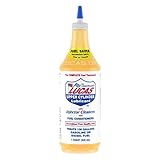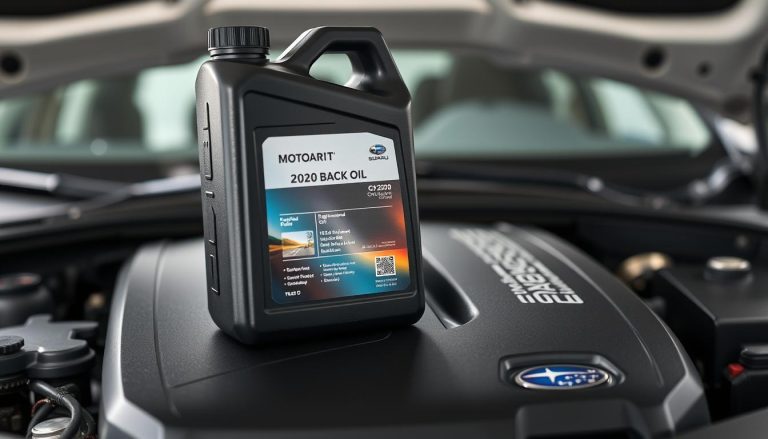Direct Fuel Injection (DFI) engines have become increasingly popular in modern vehicles due to their improved fuel efficiency and performance. However, these engines require specific maintenance to ensure optimal operation. One crucial aspect is using the right oil and fuel injector cleaner to prevent issues such as clogged fuel injectors and engine deposits.
Using the right oil and a reliable fuel injector cleaner can significantly enhance the performance and longevity of DFI engines. Products like Lucas Oil Fuel Treatment, Liqui Moly Jectron Gasoline Fuel Injection Cleaner, Royal Purple Max Atomizer Fuel Injector Cleaner, and STP Direct Injection Fuel Injector Cleaner are designed to address these needs.
This article will review the top products for maintaining DFI engines, focusing on their benefits and how they can improve engine performance.
Key Takeaways
- Importance of using the right oil for Direct Fuel Injection engines
- Role of fuel injector cleaners in maintaining engine performance
- Overview of top fuel injector cleaners: Lucas Oil Fuel Treatment, Liqui Moly Jectron, Royal Purple Max Atomizer, and STP Direct Injection
- Benefits of using these products for DFI engine maintenance
- How to choose the best oil and fuel injector cleaner for your vehicle
Understanding Direct Fuel Injection Engines and Their Needs
Direct Fuel Injection (DFI) engines have revolutionized the automotive industry with their enhanced fuel efficiency and performance capabilities. Unlike traditional fuel injection systems, DFI engines inject fuel directly into the combustion chamber, allowing for more precise control over fuel distribution.
How Direct Fuel Injection Differs from Traditional Systems
Traditional fuel injection systems mix fuel with air before injecting it into the combustion chamber. In contrast, Direct Fuel Injection systems inject fuel directly into the chamber, resulting in better fuel atomization and more efficient combustion. This difference significantly impacts engine performance and fuel efficiency.
Common Issues with Direct Fuel Injection Engines
Despite their advantages, DFI engines face specific challenges, including carbon buildup on intake valves and injector clogging. These issues can lead to decreased engine performance, reduced fuel efficiency, and potentially cause engine damage over time if not addressed properly.
Understanding these differences and challenges is crucial for maintaining and optimizing the performance of Direct Fuel Injection engines.
Why Specialized Oils and Treatments Matter for DFI Engines
The unique demands of Direct Fuel Injection engines necessitate the use of specialized oils and fuel treatments. Direct Fuel Injection (DFI) engines operate under high pressure and temperature, which can lead to specific issues such as carbon buildup and injector clogging if not properly maintained.
Using the right oils and treatments can significantly mitigate these problems, ensuring the engine runs smoothly and efficiently. Specialized oils are formulated to handle the high pressures within DFI engines, while fuel treatments help clean critical engine components.
Carbon Buildup Prevention
Carbon buildup is a significant issue in DFI engines due to the high temperatures and pressures involved. Specialized oils and treatments help prevent this buildup by cleaning the engine’s intake valves and other components. Preventing carbon buildup is crucial for maintaining engine performance and fuel efficiency.
| Benefits | Specialized Oils | Standard Oils |
|---|---|---|
| Carbon Buildup Prevention | High | Low |
| Injector Cleaning | Effective | Limited |
Injector Cleaning Benefits
Fuel injectors in DFI engines are prone to clogging due to the high-pressure fuel spray. Specialized fuel treatments help clean these injectors, ensuring they operate correctly. Clean fuel injectors are essential for optimal engine performance, fuel efficiency, and reduced emissions.
By using the right oils and treatments, DFI engine owners can enjoy improved engine performance, better fuel economy, and reduced maintenance costs over time.
Best Oils for Direct Fuel Injection Engines
When it comes to direct fuel injection engines, selecting the right oil is crucial for optimal performance. Direct fuel injection engines have unique requirements that not all oils can meet.
Selection Criteria
To identify the best oil for direct fuel injection engines, we considered several key factors. These included the oil’s viscosity, its ability to prevent carbon buildup, and its compatibility with the materials used in direct fuel injection systems. We also looked at the oil’s performance in extreme temperatures and its overall impact on engine cleanliness and efficiency.
How We Tested
Our testing process involved a comprehensive review of industry standards and manufacturer recommendations. We analyzed data from various studies and tests conducted on different oils in direct fuel injection engines. The selection criteria were then applied to narrow down the options to the top 5 oils that best met our requirements.
1. Lucas Oil Fuel Treatment 1 Quart
The Lucas Oil Fuel Treatment 1 Quart is designed to tackle the unique challenges of direct injection systems, providing a comprehensive solution for maintaining and enhancing the performance of direct fuel injection engines.
Characteristics
Key Features
The Lucas Oil Fuel Treatment 1 Quart boasts several key features that make it an effective solution for direct injection engines. These include:
- Cleans fuel injectors and intake valves
- Removes carbon deposits and varnish
- Improves engine performance and fuel efficiency
- Compatible with gasoline and diesel engines
Pros
Users of the Lucas Oil Fuel Treatment 1 Quart have reported several benefits, including:
- Enhanced engine performance
- Improved fuel efficiency
- Reduced emissions
Cons
While the product has received positive reviews, some users have noted a few drawbacks, such as:
- May not be suitable for all engine types
- Some users report minimal noticeable difference
Performance in Direct Injection Systems
The Lucas Oil Fuel Treatment 1 Quart has been shown to effectively clean fuel injectors and intake valves in direct injection systems, leading to improved engine performance and fuel efficiency. Its formula is designed to remove carbon deposits and varnish, which can accumulate over time and cause issues.
Best For and Application Recommendations
This product is best for vehicles with direct fuel injection engines that are experiencing performance issues due to carbon buildup. To use, simply add the treatment to your fuel tank as directed. Regular use can help maintain engine performance and prevent future issues.
2. Liqui Moly Jectron Gasoline Fuel Injection Cleaner
Maintaining a clean fuel injection system is crucial, and Liqui Moly Jectron Gasoline Fuel Injection Cleaner is a top choice for this task. Direct fuel injection systems are prone to carbon buildup and injector clogging, which can significantly impact engine performance. Liqui Moly’s Jectron cleaner is designed to address these issues effectively.
Overview
Liqui Moly Jectron Gasoline Fuel Injection Cleaner is a specialized formula designed to clean and maintain gasoline engines with direct fuel injection. It effectively removes deposits from fuel injectors, intake valves, and combustion chambers.
Key Features
- Effective Deposit Removal: Dissolves and removes stubborn deposits that can clog fuel injectors and intake valves.
- Engine Performance: Improves engine performance by ensuring clean fuel injectors and intake valves.
- Compatibility: Suitable for use in both direct and indirect fuel injection systems.
Pros
- Easy to Use: Simple to add to your fuel tank, making maintenance convenient.
- Proven Results: Effectively cleans fuel injectors and intake valves, improving engine performance.
Cons
- Not for All Issues: May not resolve issues caused by severe mechanical failures.
- Potential for Overuse: Should be used as directed to avoid potential issues with engine components.
Performance in Direct Injection Systems
Liqui Moly Jectron Gasoline Fuel Injection Cleaner has been shown to effectively clean direct injection systems, improving fuel atomization and engine performance. It helps prevent carbon buildup on intake valves and fuel injectors.
Best For and Application Recommendations
This cleaner is best for gasoline engines with direct fuel injection experiencing decreased performance due to deposit buildup. For optimal results, use as directed on the product label, typically adding the cleaner to the fuel tank at recommended intervals.
3. Royal Purple Max Atomizer Fuel Injector Cleaner
Royal Purple Max Atomizer Fuel Injector Cleaner is designed to tackle the unique challenges faced by direct fuel injection engines.
Overview
Royal Purple Max Atomizer is a premium fuel injector cleaner formulated to clean and maintain the health of direct fuel injection systems. Its advanced formula helps to remove deposits and prevent future buildup, ensuring optimal engine performance.
Key Features
- Advanced Formula: Designed to effectively clean fuel injectors and intake valves.
- Deposit Removal: Helps to remove harmful deposits that can reduce engine efficiency.
- Prevents Future Buildup: Conditions the engine to resist future deposit formation.
Pros
- Improved Engine Performance: Enhances fuel atomization, leading to better engine operation.
- Easy to Use: Simple application process that can be done during routine maintenance.
Cons
- Premium Pricing: May be more expensive than some other fuel injector cleaners on the market.
- Not Suitable for All Engines: Check compatibility before use, as it’s designed for specific engine types.
Performance in Direct Injection Systems
Royal Purple Max Atomizer has been shown to effectively clean fuel injectors and improve engine performance in direct injection systems. Its formula is designed to tackle the tough deposits that can form in these systems.
Best For and Application Recommendations
This product is best for vehicles with direct fuel injection engines that are experiencing decreased performance due to deposit buildup. It’s recommended to use during routine maintenance or when symptoms of clogged fuel injectors appear.
| Product Features | Benefits |
|---|---|
| Advanced Formula | Effective cleaning of fuel injectors and intake valves |
| Deposit Removal | Improved engine efficiency and performance |
| Prevents Future Buildup | Long-term engine health and maintenance |
4. STP Direct Injection Fuel Injector Cleaner
STP’s Direct Injection Fuel Injector Cleaner is engineered to tackle the unique challenges of direct injection systems. This product is designed to clean fuel injectors, intake valves, and combustion chambers, ensuring optimal engine performance.
Overview
The STP Direct Injection Fuel Injector Cleaner is formulated to address the specific needs of direct injection engines. It helps to remove deposits and contaminants that can lead to decreased engine efficiency and performance.
Key Features
- Effective Cleaning: Removes deposits from fuel injectors, intake valves, and combustion chambers.
- Compatibility: Suitable for use in both gasoline and direct injection engines.
- Easy to Use: Simple application process that can be done during routine maintenance.
Pros
- Improved Engine Performance: Cleaner fuel injectors and intake valves lead to better engine responsiveness.
- Fuel Efficiency: Cleaning deposits can help restore optimal fuel efficiency.
- Prevents Future Deposits: Helps to prevent the formation of new deposits.
Cons
- Limited Availability: May not be as widely available as other fuel injector cleaners.
- Specific Use Case: Primarily designed for direct injection engines, which may limit its use in other engine types.
Performance in Direct Injection Systems
The STP Direct Injection Fuel Injector Cleaner has been shown to effectively clean fuel injectors and intake valves, leading to improved engine performance and fuel efficiency. Its formula is designed to tackle the tough deposits that can form in direct injection systems.
Best For and Application Recommendations
This product is best for drivers with direct injection engines who are experiencing decreased performance or fuel efficiency due to deposit buildup. To use, simply add the cleaner to your fuel tank during routine maintenance. Refer to the product label for specific application instructions.
| Product Feature | Description | Benefit |
|---|---|---|
| Effective Cleaning | Removes deposits from fuel injectors, intake valves, and combustion chambers | Improved engine performance and fuel efficiency |
| Compatibility | Suitable for gasoline and direct injection engines | Versatile use across different engine types |
| Easy Application | Simple process during routine maintenance | Convenient for drivers |
Comparative Analysis: Which Cleaner Is Right for Your Engine?
The right fuel injector cleaner can significantly impact the performance and longevity of a direct fuel injection engine. With several options available, a comparative analysis is necessary to determine which cleaner best suits your engine’s needs.
Cost-Effectiveness Comparison
When evaluating fuel injector cleaners, cost-effectiveness is a crucial factor. Lucas Oil Fuel Treatment and Liqui Moly Jectron are priced competitively, while Royal Purple Max Atomizer and STP Direct Injection are positioned as premium options. The cost-effectiveness is determined by the cleaner’s performance and the frequency of application.
For instance, if a cleaner requires less frequent application, its overall cost-effectiveness increases.
Application Frequency and Method
The application frequency and method vary among the cleaners. Lucas Oil Fuel Treatment is designed for periodic use, while Liqui Moly Jectron is recommended for more frequent applications in severe conditions. Understanding the application method is crucial for ensuring the cleaner is used effectively.
Performance Results Across Different Engine Types
Performance results across different engine types show that Royal Purple Max Atomizer excels in high-performance engines, while STP Direct Injection is effective in a wide range of engine types. The cleaner’s formulation and compatibility with various engine configurations play a significant role in its performance.
Value for Money Assessment
Assessing the value for money involves considering the cleaner’s performance, cost, and application frequency. While Lucas Oil Fuel Treatment offers a competitive price, its performance may not match that of the premium options. Ultimately, the best value is determined by how well the cleaner meets your engine’s specific needs.
Conclusion
Choosing the right oil for Direct Fuel Injection Engines is crucial for maintaining engine performance and longevity. The top products reviewed in this article offer effective solutions for preventing carbon buildup and cleaning fuel injectors.
Lucas Oil Fuel Treatment, Liqui Moly Jectron Gasoline Fuel Injection Cleaner, Royal Purple Max Atomizer Fuel Injector Cleaner, and STP Direct Injection Fuel Injector Cleaner are among the best oils for Direct Fuel Injection Engines. Each product has its strengths and is suited for different engine types and needs.
When selecting the best oil, consider factors such as cost-effectiveness, application frequency, and performance results. By using the right oil, you can improve your engine’s efficiency, reduce maintenance costs, and extend its lifespan.
The comparative analysis provided in this article helps you make an informed decision. By choosing the best oil for your Direct Fuel Injection Engine, you can ensure optimal performance and protection.





